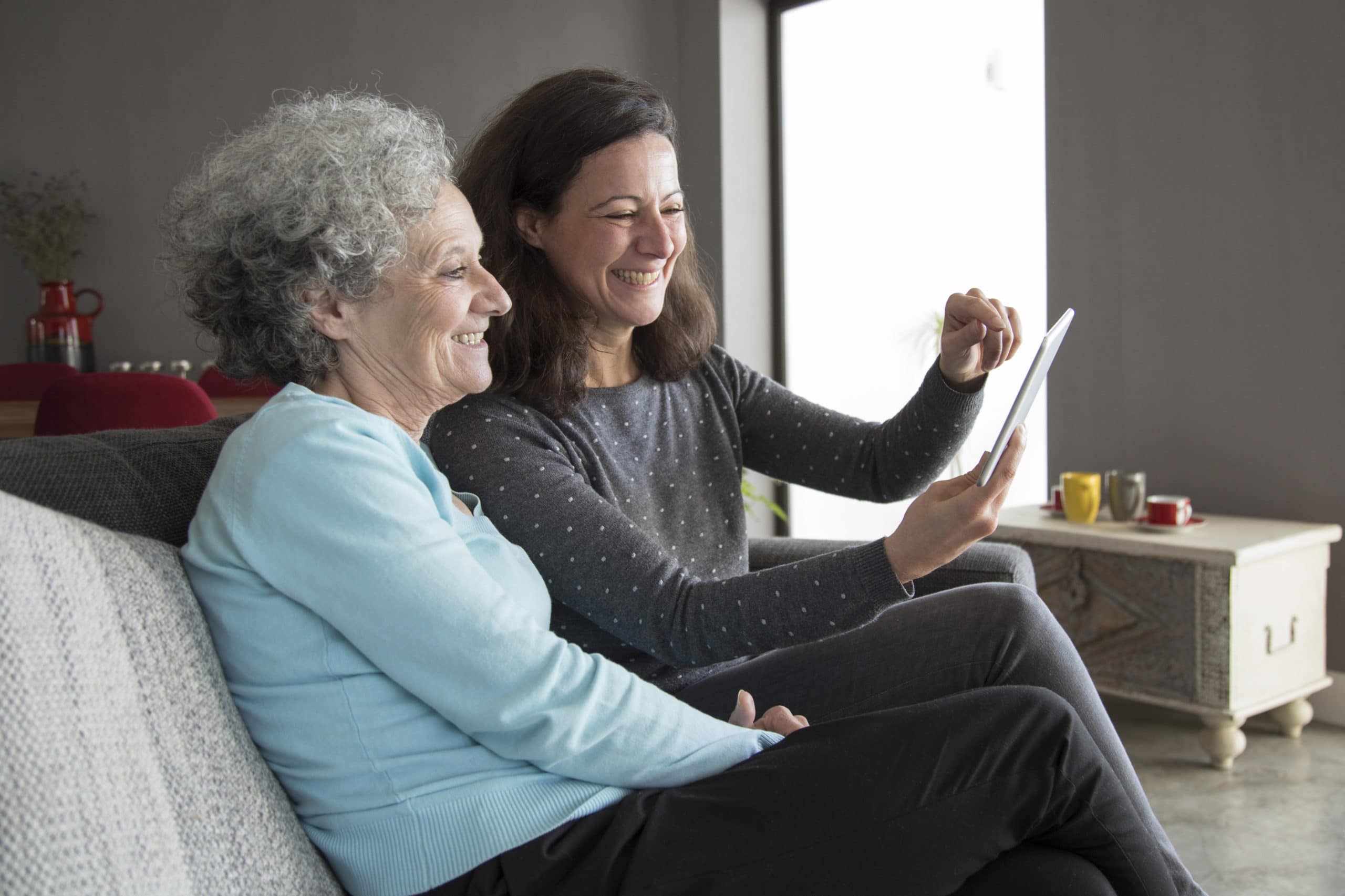Since the pandemic, people have gained a wider understanding of what carers and caregivers do, but we know that even after this time, many people do not understand the full extent of what being a caregiver means and the great impact that carers have upon the people that they support.
We believe that while caring for others, carers also deserve to be cared for. With that in mind, we have written this article to guide caregivers and their loved ones on how to best support their wellbeing.

What it means to be a carer
Being a private carer is not limited to employed care work, a carer is someone that supports another person/people and is instrumental to their wellbeing.
It could be that you’re supporting your child or partner who is living with a long-term condition, or perhaps your parents are having difficulty with everyday tasks and you’re there to regularly lend a guiding hand. Whatever your situation, we know that there are 5.4 million unpaid carers in the UK alone and each of these carers make a big difference to people’s lives.
What is caregiver burnout?
Caregiver burnout refers to the physical, emotional and mental exhaustion which is often brought on when a caregiver is caring for others’ wellbeing more than their own.
It is not uncommon for family caregivers to experience feelings of guilt when they do something to look after themselves, or even when help from others is offered. Qualities of a good caregiver are empathy and selflessness, but that does not mean that your wellbeing should be neglected, it is imperative to nurture your own mental and physical health to continue being a good caregiver for someone else.

What are the symptoms of caregiver burnout?
The symptoms of caregiver burnout often overlap with the symptoms of depression or extreme stress. They include:
- Irritability.
- Feeling extremely tired, run down and exhausted.
- Disrupted sleep or difficulty sleeping.
- Getting physically ill more often than before, such as catching a cold.
- Experiencing feelings of hopelessness and helplessness.
- Neglecting your own wellbeing.
- Feelings of resentment towards the loved one who you are caring for.
Positive affirmations for caregivers:
As before, characteristics of a caregiver are that they are naturally drawn to caring for others with a high level of empathy in everything that they do, but people often mistake disregarding their own needs as what is needed to care for someone else. A good caregiver, whether they are paid, employed, or simply helping out their loved one, needs to be cared for too.
By keeping the points below in mind and generally being kinder to yourself, not only will you feel better, but caring for others will feel easier:
- Talk to someone – this could be another family member, a friend, colleague or even a neighbour. It is important to have someone that you feel comfortable talking openly and honestly about your feelings; it will ultimately it will help alleviate any overwhelming feelings you may have.
- Set boundaries – both with the person you are caring for and with yourself. Setting boundaries can be as simple as setting times that you do tasks for others and having evenings to yourself.
- Try not to let being a caregiver take over your entire life. It is easier said than done, but you may want to invest time and energy into other aspects of your life. This may mean giving time back to an old hobby, or taking your children to the park, or simply making time to read a book.
- Be proud of yourself – it is not uncommon for family caregivers or unpaid carers to feel unappreciated; this can add emotional strain to the relationship you once had with the person you are caring for. We understand the emotional and physical strength it takes to care for others and is it not a duty taken lightly; regularly remind yourself of your efforts and how much you are helping.

A Helping Hand…
Caring for a loved one can have a tremendous impact on your everyday life and can often put a strain on you, both physically and emotionally. Some caregivers find that by alleviating some of the financial burdens that can come with caring alongside working, the feelings of anxiety and stress can be reduced. If you care for someone for at least 35 hours a week, you could be eligible for carer’s allowance, you do not have to be related to or living with the person you care for.
You can also apply for a needs assessment where health and social services carry out an assessment to work out what they can do to help you and your loved ones. They might find that you or the person that you care for would benefit from some home care to give you a break, or adaptations in the home for safe movement.
Alternatively, many families decide to get support directly from the care provider to ensure that they receive the right care for them. Here at Helping Hands, we have over 30 years of experience supporting families, and whilst it can be daunting to invite someone new into your home, you can rest assured that we have got you and your loved one’s wellbeing as our priority. You may benefit from some respite care to give your loved one a well deserved break, or some part-time support to give you more time doing what’s important: being a family.
For more information, please call 0330 029 8699 or request a callback and we will call you.
